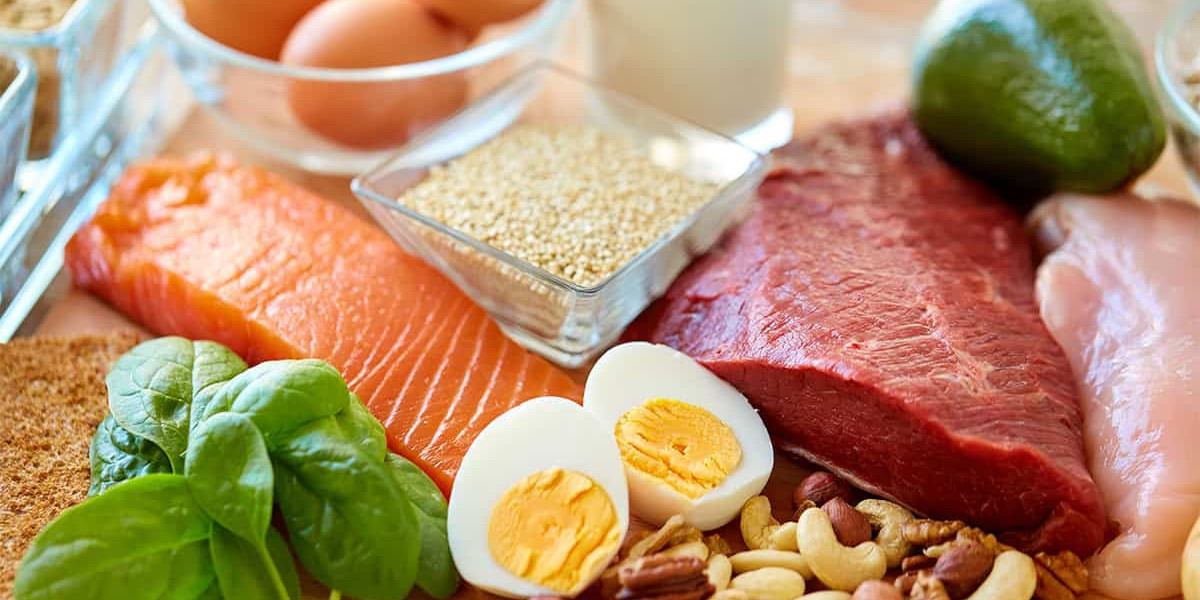Protein has always been at the center of discussions around fitness, nutrition, and long-term health. While many focus on workouts, what fuels the body afterwards is equally vital. Protein is not only a building block for muscles, but it also plays a major role in recovery, hormonal balance, energy regulation, and even mood stability. For individuals who set specific fitness targets whether its losing fat, gaining lean muscle, or improving endurance protein becomes a non-negotiable part of their daily nutrition strategy.
Why Protein Matters for Muscle Growth
When we strength train or engage in resistance workouts, muscle fibers break down and require repair. Protein supplies amino acids that rebuild these fibers, making them stronger and thicker. This is the process through which hypertrophy occurs. Consuming insufficient protein after exercise can limit progress drastically. For example, research published in the National Library of Medicine highlights that protein ingestion immediately post-exercise accelerates muscle protein synthesis. Without proper intake, the body may enter a negative nitrogen balance, leading to slower recovery and weaker adaptations.
Protein’s Impact on Weight Management
Fitness goals often include fat loss, and here too protein proves invaluable. It is the most satiating macronutrient, meaning it helps us feel fuller for longer compared to carbs and fats. This natural appetite control reduces cravings and binge eating. Additionally, protein has a higher thermic effect, meaning the body burns more calories digesting it compared to other nutrients. A steady supply of protein stabilizes blood sugar, minimizing sudden energy crashes that drive poor food choices.
Supporting Recovery and Performance
Beyond muscle building, protein also supports cellular repair, joint strength, and enzyme production. Endurance athletes benefit greatly as protein reduces inflammation and accelerates healing after long runs or cycling sessions. Even casual fitness enthusiasts notice better recovery times when they increase daily protein. Those who fail to intake enough often feel sore for longer periods, lose motivation to train consistently, and risk overuse injuries.
For individuals with dietary restrictions, selecting the right protein sources becomes challenging yet crucial. Many turn to gluten free dairy free protein powder options that allow them to meet protein needs without triggering intolerances or digestive issues. Such powders often use pea, hemp, or rice protein, delivering complete amino acid profiles for athletes while being gentle on sensitive stomachs. Including these supplements into a balanced diet ensures progress without setbacks caused by allergies or discomfort.
How Much Protein Do We Actually Need?
There is no universal figure since needs vary by bodyweight, age, gender, and activity levels. However, a widely accepted recommendation for active individuals is between 1.6 to 2.2 grams of protein per kilogram of bodyweight. For instance, someone weighing 70 kg aiming for muscle gain may require around 140 grams daily. Spreading intake evenly throughout meals improves absorption and utilization. Consuming large amounts in one sitting is less effective compared to moderate portions spaced over the day.
Best Food Sources of Protein
Whole foods remain the most reliable and nutrient-dense sources. Lean meats like chicken and turkey, fatty fish such as salmon, and eggs provide complete proteins with high bioavailability. Dairy products like yogurt and cottage cheese serve as excellent snacks. For plant-based eaters, lentils, chickpeas, and quinoa stand out. The USDA Food Database offers detailed protein content information for nearly all foods, making it easier to track and plan meals. While supplements are practical, they should not replace whole food nutrition, but rather complement it.
Timing and Distribution of Protein Intake
The timing of protein intake is another factor in achieving fitness goals. Consuming protein before sleep aids overnight recovery and prevents muscle breakdown during fasting hours. Morning intake stabilizes energy levels, while post-workout consumption maximizes muscle repair. Instead of relying on one protein-heavy meal, spreading intake across 3–5 meals enhances satiety and supports better metabolic function throughout the day.
Common Misconceptions About Protein
Many believe high protein diets strain the kidneys, but in healthy individuals this is largely a myth not supported by credible evidence. Another misconception is that women who consume more protein will bulk excessively, when in fact, protein only helps them tone and maintain lean mass while controlling body fat. Concerns around weight gain are also misplaced since protein-rich foods generally promote fat loss when combined with resistance training.
Practical Tips for Meeting Protein Goals
Meal prep ensures consistency, so cooking protein sources in advance reduces the chances of skipping them. Mixing protein into snacks like smoothies, oats, or even baked goods increases daily totals without hassle. Choosing diverse protein sources both animal and plant improves nutrient intake and prevents dietary boredom. Athletes often benefit from using recovery shakes immediately after workouts, while office workers may prefer portable options like boiled eggs or protein bars.
Conclusion
Achieving fitness goals isn’t only about the hours spent training, but about what fuels the body during and after those efforts. Protein plays a pivotal role in muscle repair, fat loss, energy balance, and recovery. Without adequate intake, progress slows, fatigue increases, and the risk of injury rises. By prioritizing high-quality sources, distributing intake strategically, and tailoring amounts to individual needs, anyone can set themselves up for long-term success. For those with restrictions, alternative solutions like plant-based powders make it possible to stay on track without compromise. Ultimately, when protein intake aligns with training goals, the body responds with resilience, strength, and visible results.



